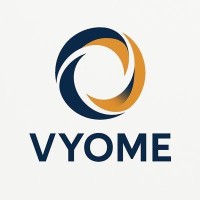CAMBRIDGE, Mass.– Vyome Holdings, Inc. (Nasdaq: HIND), a clinical-stage healthcare holding company, announced it has acquired substantially all of the assets of Oculo, Inc., an artificial intelligence startup launched at the Massachusetts Institute of Technology. The company also said it has established a new business unit dedicated to using AI to address inflammation.
The new division will build on Oculo’s technology to create an AI psychiatrist trained on data from both the U.S. and India. Oversight will come from a newly formed AI subcommittee of Vyome’s board of directors, comprised of Krishna Gupta, Mohanjit Jolly, and Stash Pomichter — all MIT alumni with backgrounds in AI.
“Inflammation is currently one of the biggest health crises facing humanity, and we intend to attack the condition from all angles in order to limit the usage of steroids,” said Pomichter, a director at Vyome. “We envision an AI psychiatrist that can diagnose and help treat systemic inflammation by targeting behavioral drivers and biomarkers.”
Pomichter added that the goal is to establish “an entirely new therapeutic category” at the intersection of mental health, psychoneuroimmunology, and digital health, with initial commercialization targeted in the U.S. and India. He noted that Oculo’s work on biomarkers such as “brain burn” would provide an innovative foundation for Vyome’s efforts.
The company emphasized that the Oculo deal will not affect progress on its core biotech programs. Vyome remains funded through 2026 to advance its main pipeline.
Alay Shah, founder of Oculo, said the startup was built “to quantify the workings of the mind by taking advantage of the latest advances in AI.” He added, “I’ve always believed the best AI products would be built firmly with humans in the loop and I’m excited Vyome will carry forth this vision as they target inflammation.”
Mohanjit Jolly, a Vyome director and partner at Iron Pillar, said the potential market for digital therapeutics that reduce reliance on drugs could exceed $100 billion over the next decade. “The advances in AI create an opportunity to use data to better human lives across the board, but our focus is on reducing inflammation in every part of the body,” he said. “I’m excited we were able to close this transaction with Oculo to launch our AI efforts in addition to advancing our existing inflammation-focused biotech assets.”


